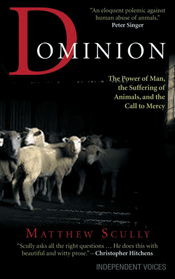philosophy
Mike Rugnetta talks fan communities at XOXO Festival
Posted by dronon on Tue 10 Dec 2013 - 03:13At the 2013 XOXO Festival, Mike Rugnetta of the YouTube/PBS Idea Channel delivered a really interesting talk about the Internet, specifically how it's helped us develop new ways of constructing our self-identities, due to the discovery of new ideas and interacting socially online, amongst other things. He hops from topic to topic very rapidly, and doesn't really get started until about two minutes into the video.
Interestingly - if you jump to the 10:15 mark - he discusses fandoms. Good fandoms have lots of opportunities for interaction, sharing creativity, and finding ways for the fans to relate to one another. In fact, the fans may relate to each other more than they might relate to the original theme that caused them to gather in the first place! What matters is the energy within the fan community, the bonds between fans. (This reminded me of Anthrocon 2007's guest of honor Mark Evanier, who noted that furries seemed to be "fans of each other".)
Mike asks his audience if there's a fandom without canonical media for fans to gather around? A fandom which would instead subsist mainly by the interaction of the fans, without devotion to a specific TV show, movie, or comic book series? Yup! Furry!
Philosophy: Traditional animation vs. CGI animation
Posted by Fred on Tue 27 Aug 2013 - 02:46Amid Amidi of the Cartoon Brew uses this new GEICO commercial to ask, what is an animated cartoon and what is reality, anyway? – a meaningful question for anthropomorphic fans today.
Opinion: Furries, Freud, art, and "sexual correctness"
Posted by Patch Packrat on Sun 10 Feb 2013 - 02:55The Rumpus, a blog aimed at the challenging side of pop culture, brings up Furry Fandom's most divisive topic in Oh So Furry: The Rumpus Interview with Kilcodo.
Rumpus: Are cartoons sexy? Are animals sexy? Or are both of those statements irrelevant? Is it more the re-imaging idea?
Kilcodo: It depends on the person, but I think if you look at the way that we use language and the way we think about what is and isn’t sexy, we’ve constantly used anthropomorphic language. We call a sexy woman a fox. We call an older sexy woman a cougar. We call men bear, wolf. I’ve heard otter being used in the gay community. And I think that’s because as sexual beings we can see eroticism in many different organic forms, and I think because animals are beautiful, people like to meld the two forms together, so you have a human body and a majestic head of an animal, and people find that beautiful and even erotic.
Kilcodo's thoughtful answer brings to mind the Freudian term "Polymorphous perversity".
South African 'sexologist' turns to Jungian archetypes to interpret furry fandom
Posted by GreenReaper on Fri 28 Dec 2012 - 15:05The Mail & Guardian, South Africa's news weekly aimed at the 'intelligentsia', has published a story about furries which spends much time trying to explain sexual aspects of the fandom:
Johannesburg sexologist JacoPhillip Crous opines that "fursonas can be understood as totem representations ... an animal that's believed by the person to have spiritual or some other, possibly sexual, subjective significance, so the person adopts it as a personal emblem to which [he or she] feels drawn psychologically."
Interpreting this in a way akin to Jungian archetypes, Crous says the fursona is a form of "empowerment" and "self-transcendence" for the individual – and, for the sexually invested, the fursona is the "idealised totemic form that drives the erotic charge for the yiff enthusiast".
The piece quotes Tumblr bloggers, WikiFur, and Internet-based surveys, but no furry fans appear to have been interviewed for it. South Africa has a small furry community, but it is not mentioned within the article.
'Wired' explains anthropomorphism
Posted by Fred on Thu 16 Aug 2012 - 14:25Is 'anthropomorphism' too vague for you? Wired’s Matt Simon explains the real meaning of anthropomorphism, in the first 1:40 minutes of this August 15th “Footnotes” video.
Review: 'Dominion: The Power of Man, the Suffering of Animals, and the Call to Mercy'
Posted by Rakuen Growlithe on Sat 26 Nov 2011 - 20:40 Matthew Scully is an unusual proponent of animal rights, coming from the Christian-favoured, U.S. Republican party. Indeed, he speaks about people automatically assuming he is on the side of hunters and pig 'farmers' when, in fact, he has been a vegetarian for over 30 years.
Matthew Scully is an unusual proponent of animal rights, coming from the Christian-favoured, U.S. Republican party. Indeed, he speaks about people automatically assuming he is on the side of hunters and pig 'farmers' when, in fact, he has been a vegetarian for over 30 years.
While Scully does support animal rights, he makes that stand from a generally religious perspective, arguing that current treatment of animals is an abuse of god-given dominion, and disagreeing with the secular reasoning of animal rights proponents like Peter Singer.
Scully's ability is shown when coming to the main thrust of his book, where he writes about animals, how they are treated and how they should be treated. He is an excellent writer (a former speechwriter for then-president George W. Bush), and a dutiful investigator, travelling to most of the places about which he writes.